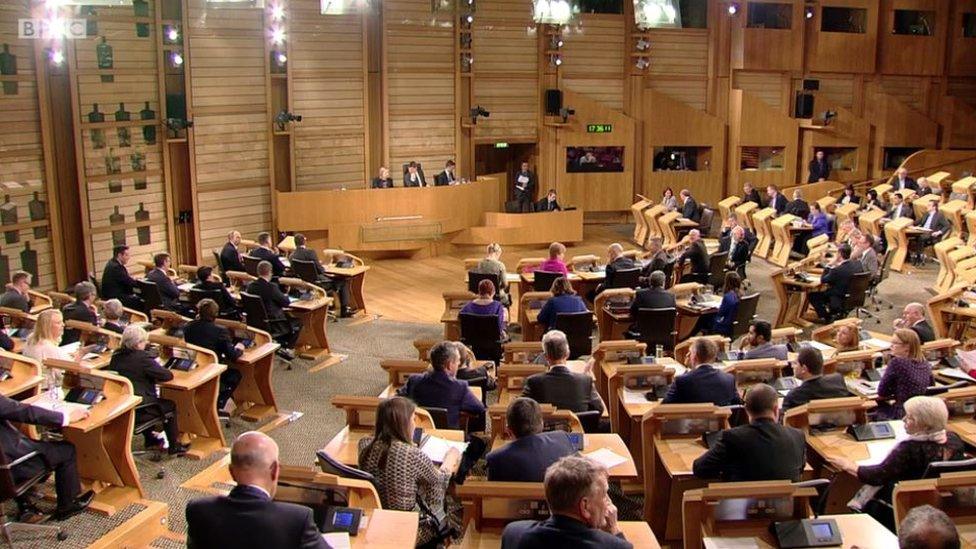Labour set out Scottish budget amendment plans
- Published
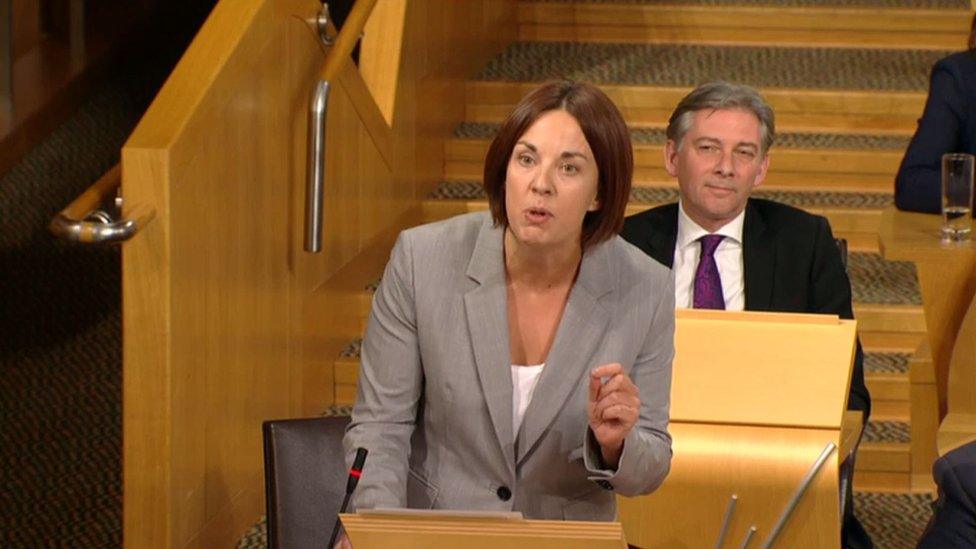
Kezia Dugdale said Labour would attempt to amend the government's budget proposals
Scottish Labour want changes to tax and more money for local government if they are to back the Scottish government's budget.
Finance Secretary Derek Mackay is holding talks with opposition parties in a bid to secure backing for his tax and spending proposals.
The Greens have also called for tax changes, while the Lib Dems want up to £400m of spending commitments.
The first formal vote on the budget will be held on Thursday.
Previous Holyrood votes on the budget and taxation have failed to produce any consensus between the parties.
Mr Mackay has suggested a budget deal with either the Conservatives or Labour is unlikely, saying there is more "room for manoeuvre" with the Greens and Lib Dems.
Labour leader Kezia Dugdale has written to the finance secretary setting out what it would take for her party to support the budget.
In the letter, Ms Dugdale repeatedly refers to council budgets being cut by £327m.
Cuts to services
The Scottish government does not accept this figure, insisting that other funding such as cash going directly to schools and health and social care partnerships means the allocation to "local services" would, in fact, increase.
She wrote: "Labour will table amendments to the SNP's budget to stop, in full, the £327m cuts to local services like schools and care of the elderly, and to invest in our economy.
"The Scottish Parliament has the powers to generate extra resources to make the cuts unnecessary. We will seek to set an income tax rate just 1p higher than the rate set by [UK chancellor] Phillip Hammond, and we will back a 50p top rate of tax for the richest few."
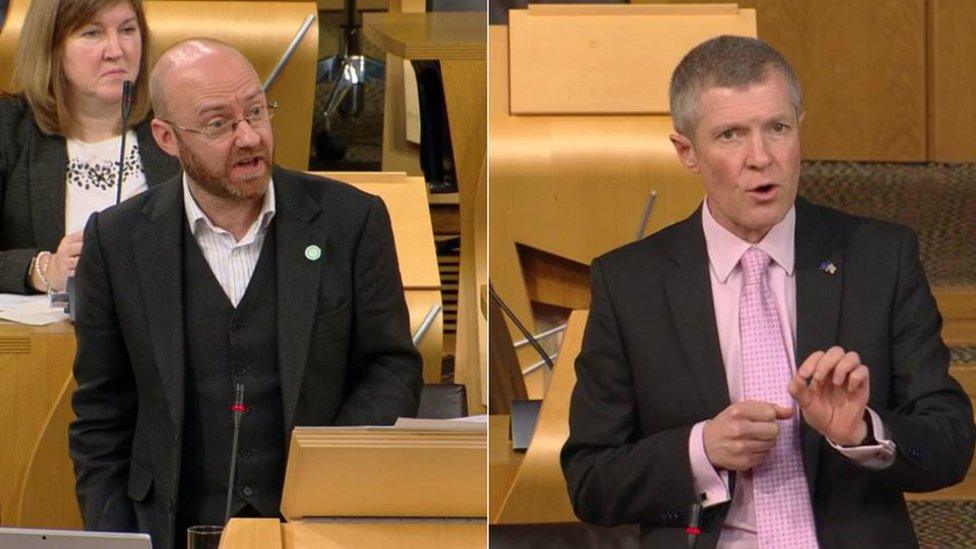
The government has identified Patrick Harvie's Greens and Willie Rennie's Lib Dems as likely partners for a budget deal
The Scottish Greens have also targeted tax changes and extra funding for public services, with co-convener Patrick Harvie urging the government to take "bold action" on higher rates for top earners.
However, he said there "remain big differences" between the Green and SNP positions, adding that he had been "a little disappointed in the apparent ruling out of any constructive ideas that have come forward".
The Scottish Lib Dems have asked for up to £400m of extra spending on education, mental health, policing and transport links in return for their support.
Leader Willie Rennie has said the government is not taking proposals seriously, warning that "the clock is ticking" and saying that "it is not looking good for next week's vote".
The Scottish Conservatives, meanwhile, have pledged to reject the budget "unless the SNP signal they are re-thinking their tax plans".
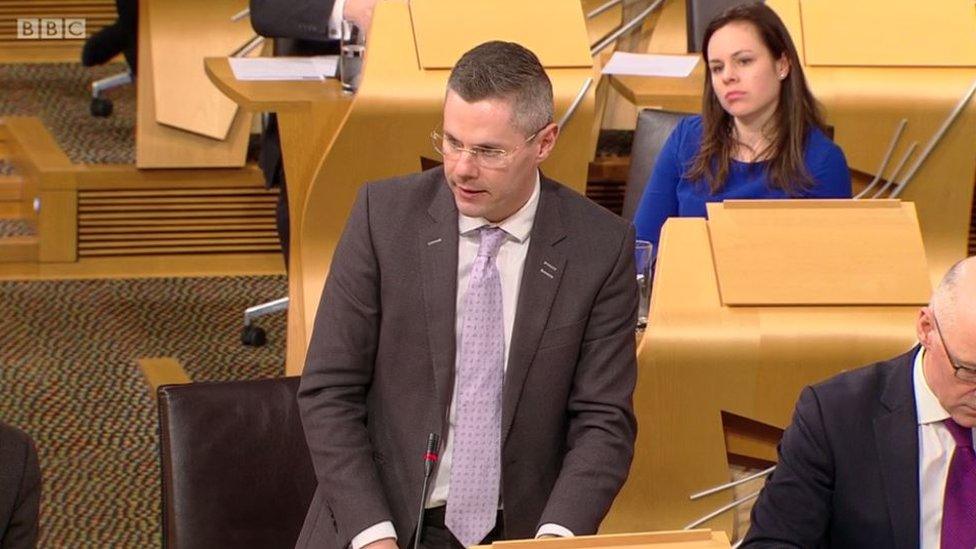
Derek Mackay has defended his plans as "a budget for growth and public services"
Finance spokesman Murdo Fraser said the budget "should prioritise growth, by setting competitive tax rates that help support jobs and the economy", but said instead the SNP would "cut growth even further by turning Scotland into the highest-taxed part of the UK."
First Minister Nicola Sturgeon has said that the government would accept "appropriate compromises", but said "we are not getting any reasonable proposals from the Conservatives or the Labour Party".
'Record investment'
The budget bill, external was published on Friday as the formal legislative process got under way, and Mr Mackay described it as "a budget for growth and public services".
He said: "We have published a budget for growth and public services, for our environment and our communities. It delivers increased investment in education, with £120m for schools to use at their discretion to close the attainment gap in 2017-18 - £20m more than previously announced.
"This budget will deliver record investment in the NHS through an additional £304m in resource funding, £120m above inflation as part of an overall commitment of an extra £500m above inflation over this parliament. And it protects low-income households from tax hikes and supports more and better jobs.
"This government seeks consensus and I remain in active discussions with other political parties.
"I am considering the detail of the propositions that we have received to date and will continue to take forward constructive discussions on our budget plans to deliver growth for our economy and strong public services for everyone."
- Published27 January 2017
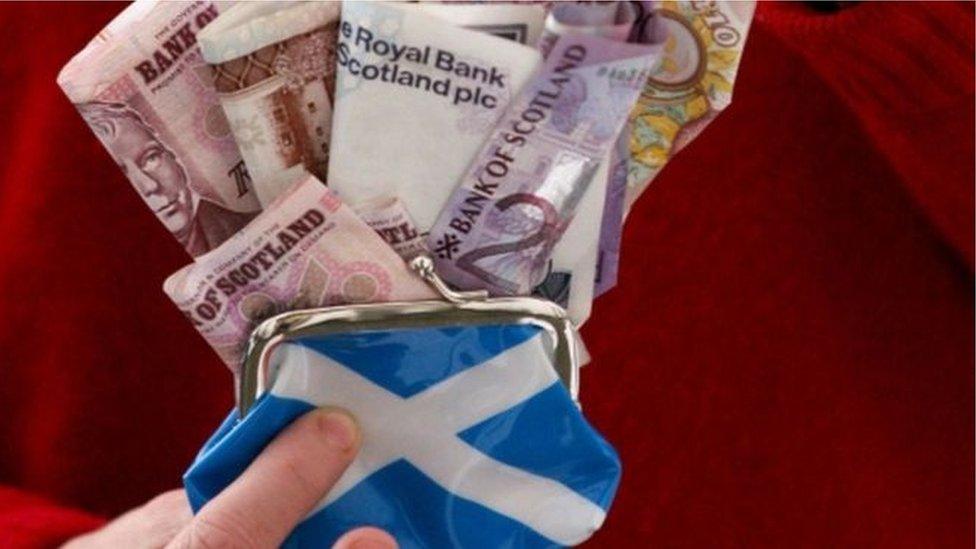
- Published27 January 2017

- Published25 January 2017
